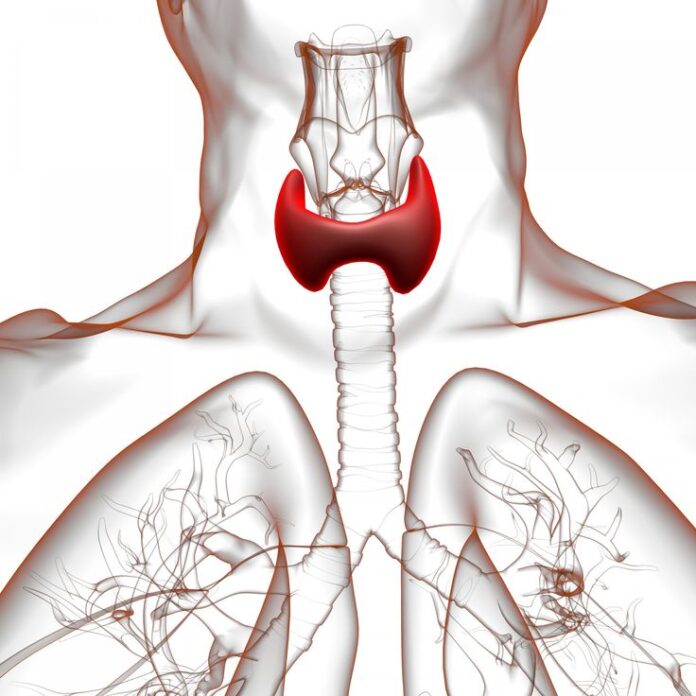Let’s talk about the thyroid, that little butterfly-shaped gland in your neck that’s quietly running the show in your body. It’s small, yes, but don’t let the size fool you. This gland is like the CEO of your metabolism, energy, and mood. It doesn’t matter if you’re a man or a woman, your thyroid works for everyone equally. Equality goals, right?
But sometimes, this hardworking gland takes a detour, and that’s when thyroid problems show up. No need to panic, though! Let’s break it down, keep it simple, and make it fun while we learn how to keep this little boss in check.
What Is the Thyroid?
Picture your thyroid as the control room operator in a sci-fi movie. Its job is to release hormones like T3 (triiodothyronine) and T4 (thyroxine), which decide how fast or slow your body burns energy. It’s in charge of everything, from how fast your heart beats to how warm or cold you feel, and even how shiny your hair looks. Talk about multitasking!
What Causes Thyroid Problems?
Why does the thyroid act up? Well, sometimes life just happens. Let’s break it down:
1. Autoimmune Diseases
When your immune system gets confused and starts attacking your thyroid instead of protecting it. This can cause:
- Hashimoto’s Thyroiditis (linked to hypothyroidism): Your thyroid slows down and struggles to make enough hormones.
- Graves’ Disease (linked to hyperthyroidism): Your thyroid works overtime, producing way too many hormones.
2. Iodine Deficiency
Your thyroid LOVES iodine like Sambhar loves Idli. It uses iodine to produce hormones. Too little iodine? Your thyroid can’t keep up, which can lead to problems like goiter or hypothyroidism. (P.S. This is why iodized salt is such a big deal!)
3. Genetics
Thyroid issues can run in families, so if your mom, dad, or even your grandparent had thyroid problems, it might just show up in your life too. Thanks, DNA!
4. Stress and Lifestyle
Chronic stress is like the kryptonite of your thyroid. Long work hours, skipping meals, or those endless “Netflix and no sleep” marathons? All of this can throw your thyroid out of whack. Balance is key!
5. Nodules or Inflammation
Sometimes, small lumps (nodules) or swelling in the thyroid gland can mess with its function. Most nodules are harmless, but it’s always good to check with your doctor.
6. Thyroid Problems Affect Everyone
Yes, men can have thyroid issues too! It’s not just a “woman’s problem.” Men might experience symptoms like weight changes, mood swings, or fatigue. So, guys, don’t ignore those signs, your thyroid matters too.
The Types of Thyroid Disorders
Let’s get to know the different ways the thyroid can act up and whether they’re curable or manageable:
- Hypothyroidism:
- What Happens? The thyroid slows down and puts your metabolism on pause.
- Symptoms: Fatigue, weight gain, hair thinning, and feeling cold.
- Is It Curable? It’s not curable but totally manageable with daily thyroid hormone replacement pills. With consistent treatment, life goes back to normal.
- Hyperthyroidism:
- What Happens? The thyroid goes into overdrive, like a hyperactive kid on a sugar rush.
- Symptoms: Rapid weight loss, anxiety, sweating, and a racing heart.
- Is It Curable? It can often be treated with medications, radioactive iodine therapy, or, in some cases, surgery. Most people recover completely with the right care.
- Goiter:
- What Happens? An enlarged thyroid gland that’s often linked to iodine deficiency or hormonal imbalance.
- Symptoms: Swelling in the neck, difficulty swallowing, or a visible lump.
- Is It Curable? Yes! In many cases, adding iodine to your diet or addressing the hormonal imbalance can resolve it. Severe cases may need surgery.
- Thyroid Nodules:
- What Happens? Small lumps that form in the thyroid. Most are harmless, but they can sometimes interfere with thyroid function.
- Symptoms: You might not feel anything, but large nodules can cause a visible lump or discomfort.
- Is It Curable? Yes! Many nodules don’t need treatment, but if they’re causing trouble, options like medication, minimally invasive procedures, or surgery are available.
- Thyroid Cancer:
- What Happens? Cancer develops in the thyroid gland. It’s rare but worth being aware of.
- Symptoms: A persistent lump in the neck, voice changes, or difficulty swallowing.
- Is It Curable? Absolutely. Thyroid cancer is one of the most treatable cancers, especially when caught early. Regular check-ups are your best defense.
Common Symptoms of Thyroid Problems
When your thyroid goes off-script, your body starts sending you clues. Think of it like a text message saying, “Hey, something’s not right!” Here’s what to look out for:
Hypothyroidism (Underactive Thyroid):
- Feeling tired all the time, no matter how much you sleep
- Weight gain that doesn’t make sense (blame it on the thyroid, not dessert!)
- Dry skin and hair that’s suddenly dull
- Always feeling cold, even when others are sweating
- Mood swings or feeling low for no reason
Hyperthyroidism (Overactive Thyroid):
- Losing weight despite eating like it’s a food festival
- A heart that races faster than your favorite action hero
- Feeling anxious, jumpy, or on edge
- Trouble sleeping (hello, late-night scrolling)
- Sweating buckets for no reason
How Can We Treat or Manage Thyroid Issues?
Here’s the good news: thyroid problems might sound scary, but they’re totally manageable with the right care! Here’s how you can stay on top of it:
- See a Doctor First: Start with a blood test (TSH) to know where you stand. A proper diagnosis is step one.
- Medications Are Your Friend:
- For hypothyroidism, you’ll likely need synthetic thyroid hormones. Easy peasy.
- For hyperthyroidism, medication or temporary treatments (like radioactive iodine) can help.
- Nutrition Matters:
- For everyone: Eat iodine-rich foods like fish, eggs, and dairy. Add selenium (nuts) and zinc (seeds) to your plate.
- Extra tip: Avoid too much soy or processed foods; they can interfere with thyroid function.
- Stay Active:
- Gentle exercises like yoga or walking can help regulate hormones and improve energy.
- Stress Less:
- Find your stress-busting routine, whether it’s yoga, meditation, or binge-watching your favorite sitcom.
- Regular Check-Ups:
- Thyroid levels can change over time. Keep up with your doctor appointments to stay ahead.
- Surgery (Only If Needed):
- In rare cases, like thyroid cancer, surgery might be the best option. Don’t worry; modern medicine has your back.
Mama’s Verdict:
“Thyroid issues are like a bad Wi-Fi connection: annoying but fixable. The key is to listen to your body, act early, and stay consistent with treatment. Whether it’s eating better, moving more, or just managing stress, small changes can lead to big improvements. And remember, the thyroid might be tiny, but it’s mighty, so treat it with love and care. Healthy thyroid, happy life!”


